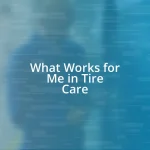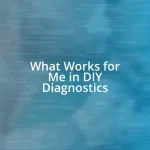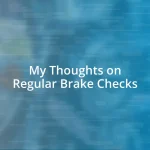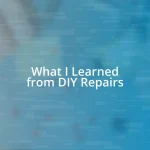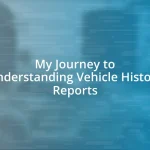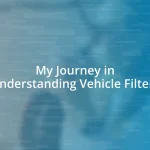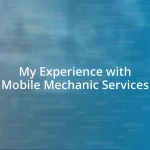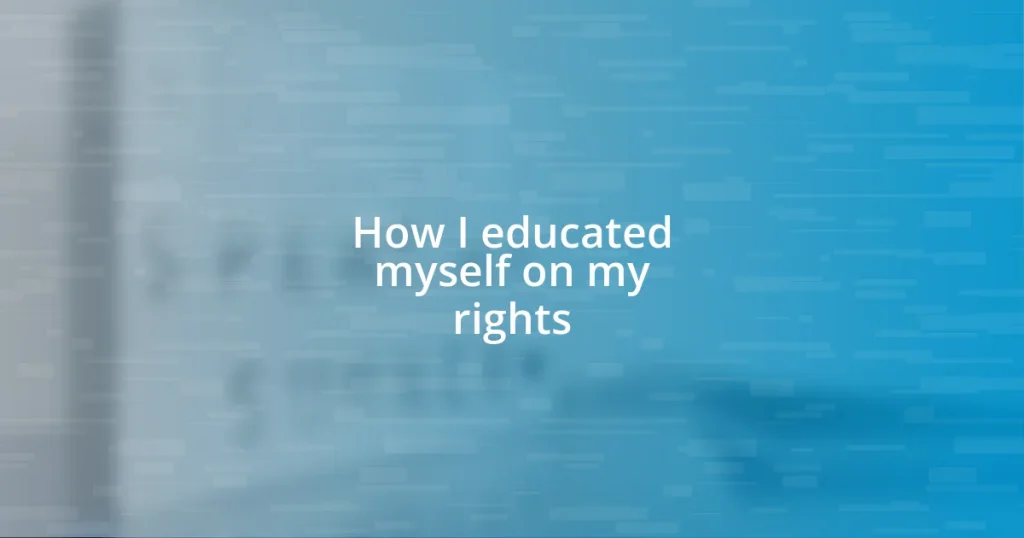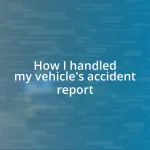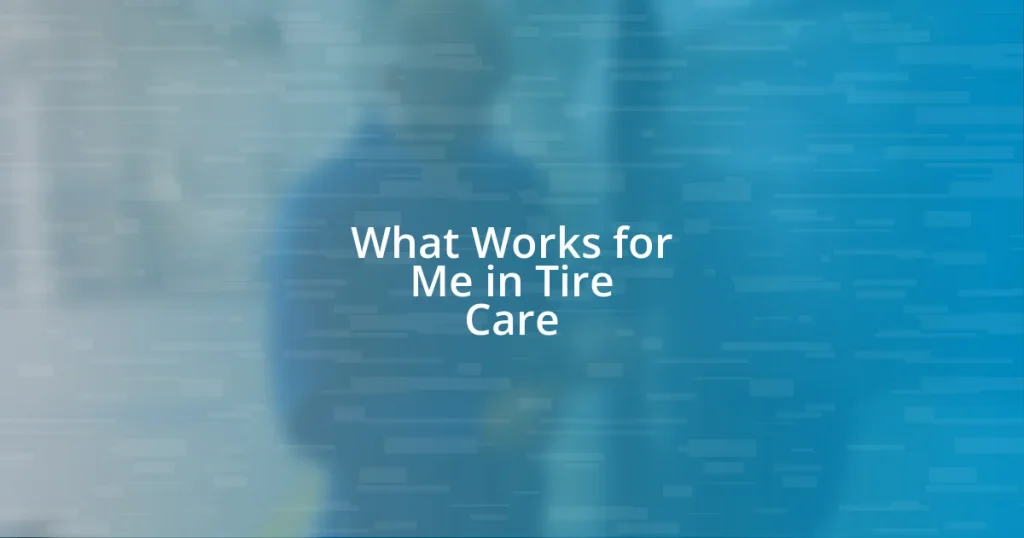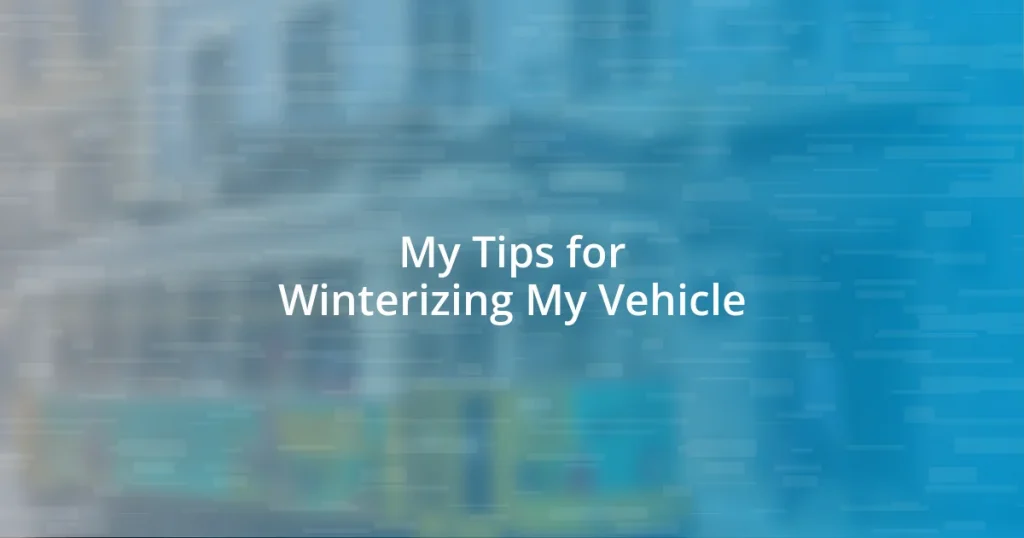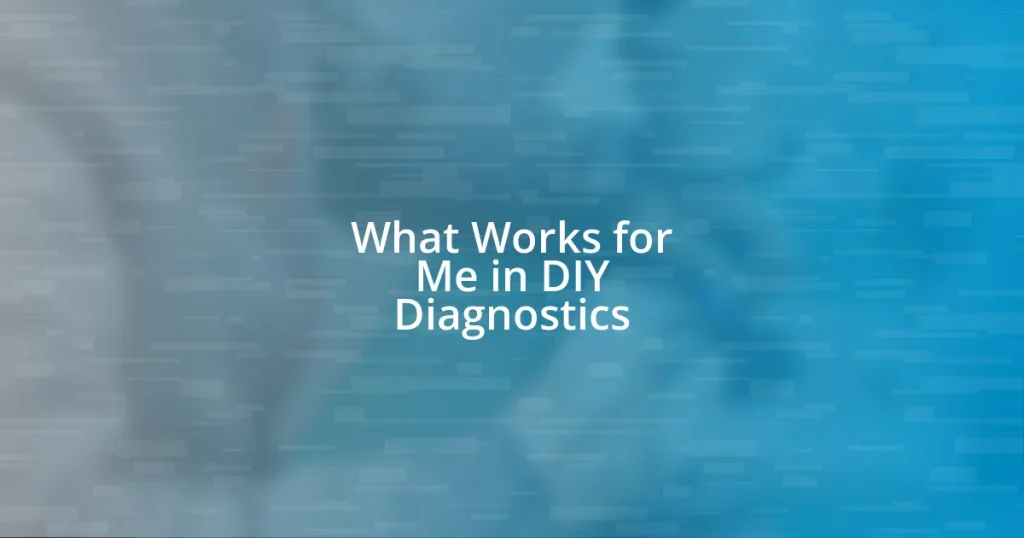Key takeaways:
- Understanding rights fosters empowerment, enabling individuals to advocate for themselves in various situations, such as consumer issues or workplace policies.
- Finding reliable resources, including government websites, nonprofit organizations, and community engagements, is essential for educating oneself about legal rights.
- Applying knowledge in real situations, particularly through advocacy groups and workshops, reinforces learning and empowers individuals to share insights that can positively impact their communities.
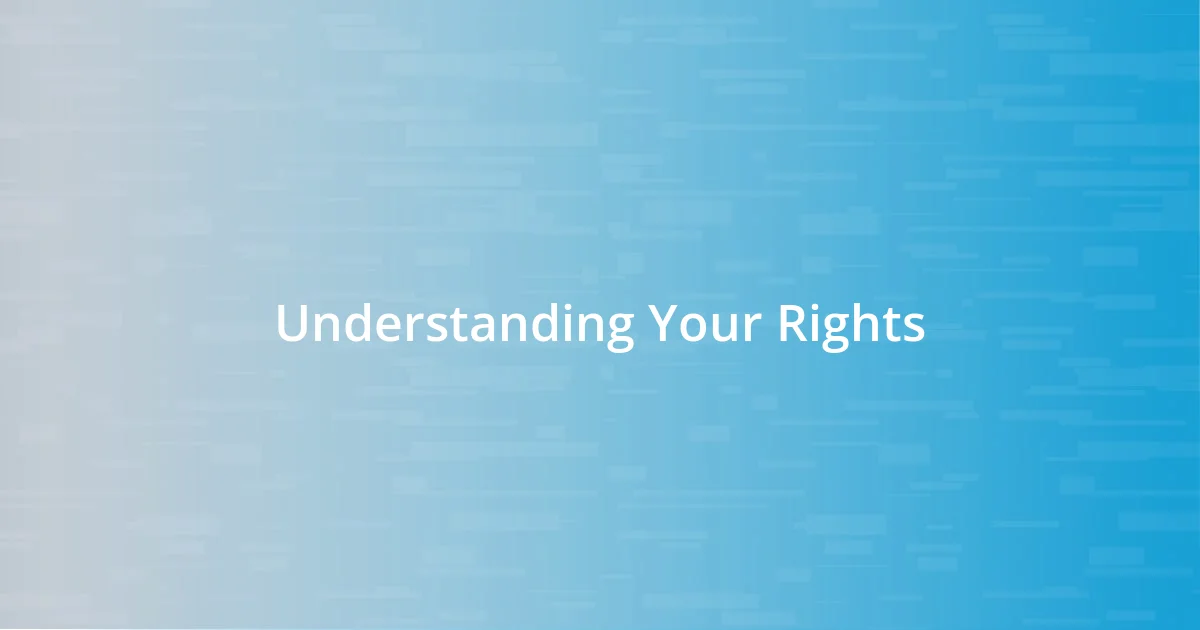
Understanding Your Rights
Understanding your rights is like unlocking a door to empowered decision-making. I still remember the first time I learned about my consumer rights when a purchase went wrong. It felt like discovering a superpower, knowing I had the right to ask for a refund or replacement when the product didn’t meet expectations. Have you ever experienced that moment when you realized you had leverage in a situation?
As I delved deeper into the subject, I learned that rights can feel abstract until they directly affect you. One time, I was faced with an unfair workplace policy that seemed overly restrictive. It was through researching employee rights that I understood I had the right to address these concerns—suddenly, the policies seemed less daunting. Doesn’t it ignite a sense of confidence to know that there’s legal backing for your voice?
Over time, I’ve come to appreciate that understanding my rights isn’t just about legalities; it’s about feeling a sense of belonging and respect within my community. When we encompass knowledge of our rights, it fosters an environment where we can advocate for ourselves and others. Isn’t it gratifying to share that knowledge, knowing it can empower someone else?
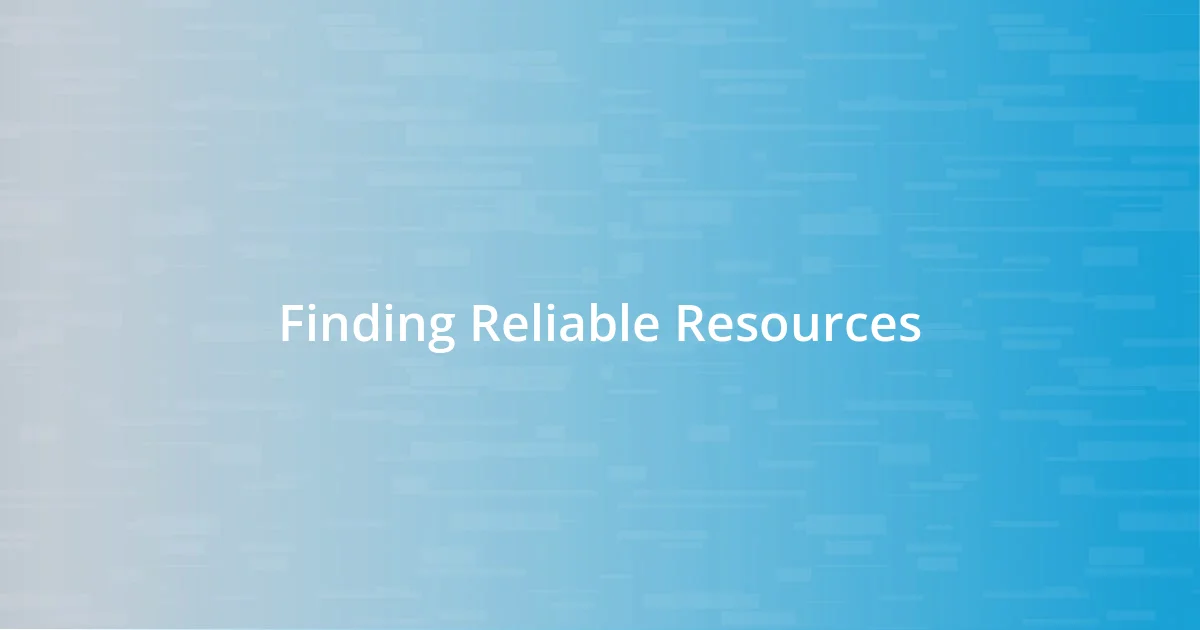
Finding Reliable Resources
Finding reliable resources is essential for anyone eager to educate themselves about their rights. I remember my initial search for trustworthy information; it was a bit overwhelming with so many sources available online. The key is identifying websites and organizations known for their credibility, like government websites or nonprofit organizations, which often provide accurate and up-to-date information on legal rights.
I think personal recommendations can also guide you to solid resources. I once asked a friend who had navigated a complicated legal situation for tips on where to look. This conversation led me to some invaluable books and online forums where real people shared their experiences. Engaging with others who have been down the same path can greatly enrich your understanding of your rights.
Here’s a quick comparison of different types of resources I found helpful:
| Resource Type | Pros |
|---|---|
| Government Websites | Credible information, up-to-date legal guidelines |
| Nonprofit Organizations | Focus on advocacy, often offer workshops and resources |
| Books by Experts | In-depth analysis, well-researched |
| Online Forums | Real-life experiences, community support |
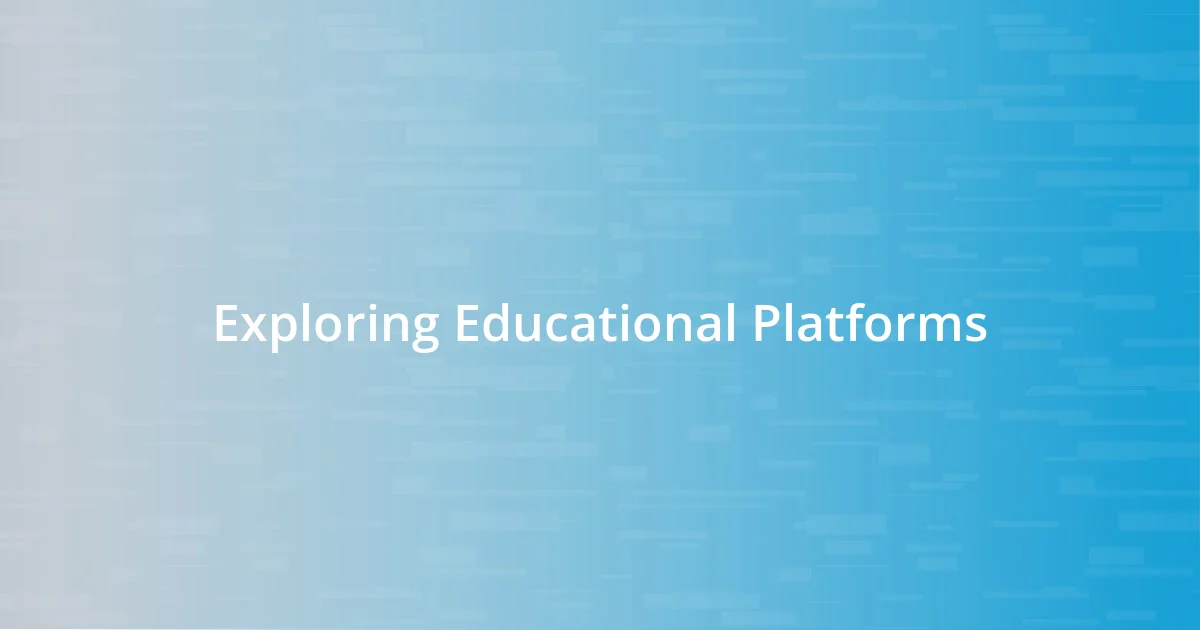
Exploring Educational Platforms
Exploring educational platforms can make a significant difference in your quest to understand your rights. I vividly recall stumbling upon a comprehensive online course that broke down legal jargon into digestible lessons. The feeling of enlightenment I got from those sessions was remarkable; it was as if a cloud of confusion had lifted, leaving me clearer on essential concepts like contract rights and consumer protections.
I discovered various platforms that catered to different learning styles, making it easier to absorb information. Here are some that I found particularly effective:
- Online Courses: Websites like Coursera and Udemy offer courses from universities and industry professionals focused on legal rights, often with interactive elements to enhance learning.
- Webinars and Virtual Workshops: Many nonprofit organizations host live sessions where you can ask questions and gain insights directly from experts.
- Podcasts: I’ve enjoyed listening to rights-based podcasts during my commutes, turning travel time into an enlightening experience.
- YouTube Channels: Video tutorials can simplify complex topics; I found channels dedicated to legal education that feel conversational and engaging.
By exploring these platforms, I not only gained knowledge but also felt part of a community eager to share and support one another in understanding our rights.
Diving deeper into educational resources can sometimes lead you to unexpected treasures. I once subscribed to a newsletter from a human rights organization, and it transformed the way I viewed current events. Each issue contained real stories of individuals standing up for their rights, making the world of legal protections feel much more personal and relatable.
Staying engaged with these educational platforms fosters an ongoing learning environment. I often revisit older sessions or explore new topics just to keep myself updated. The act of continuous learning about my rights keeps me motivated and empowered—believing that knowledge isn’t static and can always be enriched.
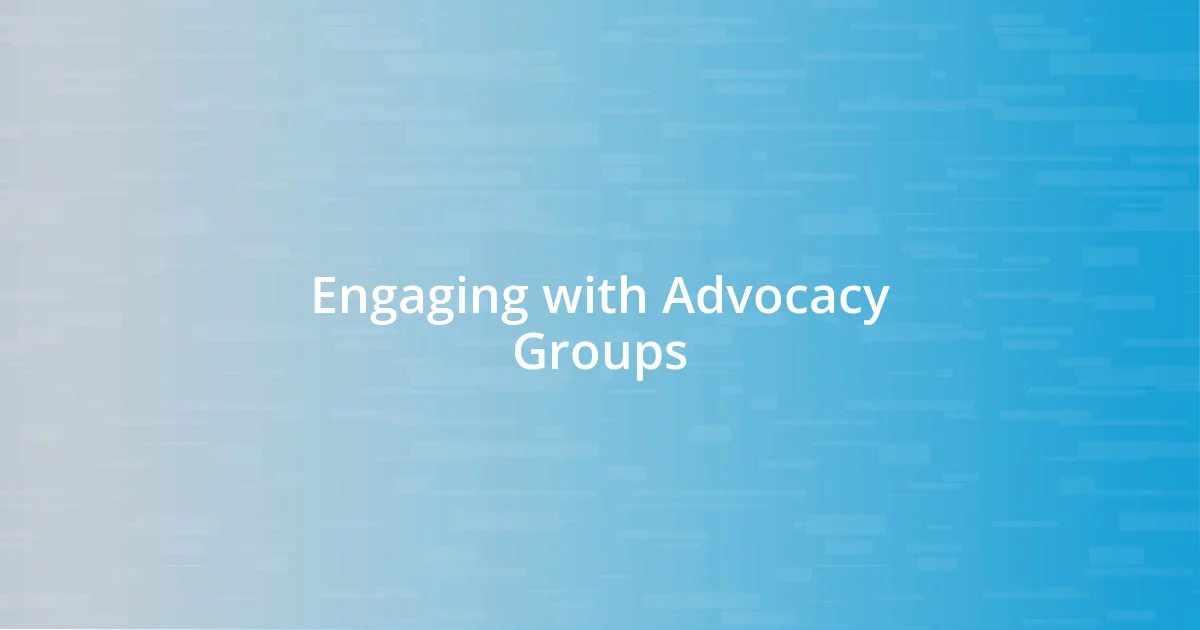
Engaging with Advocacy Groups
Finding the right advocacy groups can be a game-changer in understanding your rights. I remember feeling a bit lost until I joined a local group dedicated to civil rights. The connections I made there not only broadened my understanding but also provided me with avenues to engage in activism. Have you ever felt that rush of empowerment from being part of a community?
It’s fascinating how advocacy groups can illuminate the nuances of the law. I was once hesitant about attending a community meeting, but when I did, it opened my eyes to the collective strength in sharing our stories. Hearing firsthand accounts of legal battles sparked a passion in me to not only learn more but also to become an advocate myself. It’s a reminder that your voice matters, and it can echo through a room full of like-minded individuals.
Networking with these groups led me to workshops aimed at teaching rights and responsibilities. I’ll never forget my first session; the energy in the room was infectious. Everyone was eager to ask questions, share experiences, and support one another. This collaborative atmosphere made learning about my rights feel not just educational but also deeply personal—like embarking on a shared journey to empower ourselves and others.
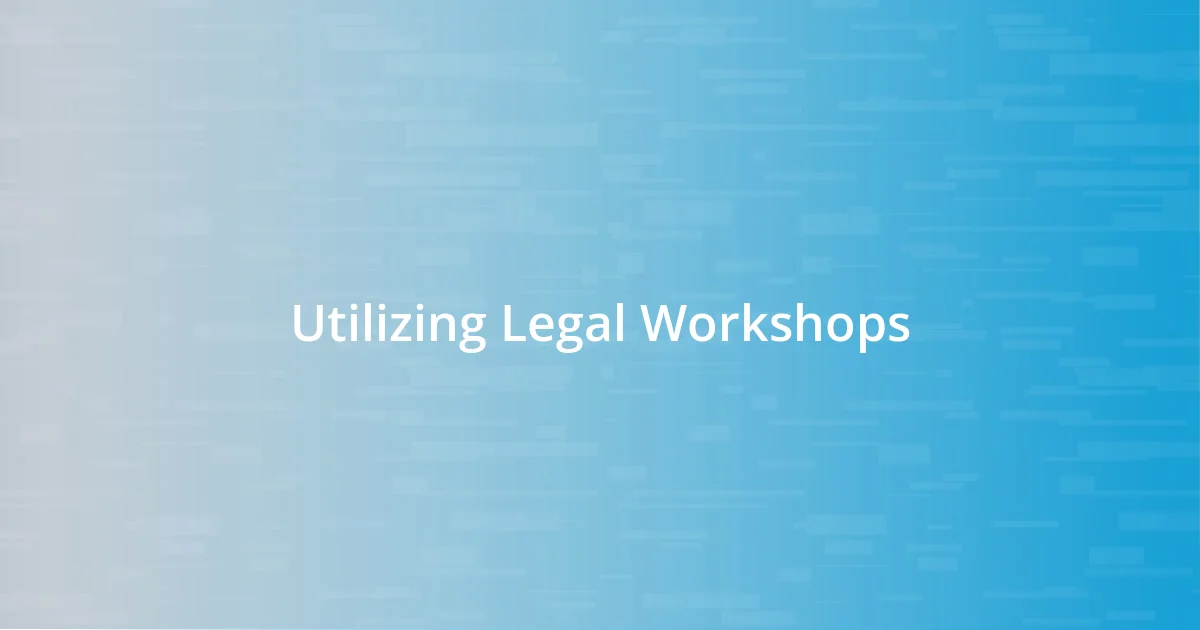
Utilizing Legal Workshops
Participating in legal workshops was one of the most enlightening experiences in my self-education journey. I still remember my first workshop, where the warmth of the facilitator created an inviting atmosphere. It was an early Saturday morning, and as I entered the room, I felt a mix of excitement and nerves—was I going to fit in? Surprisingly, everyone was just as eager to learn, which helped me relax. The session covered fundamental rights in a way that made the law feel accessible rather than intimidating.
In these workshops, the hands-on approach to learning stood out to me. For instance, during a particular session on tenant rights, we engaged in role-playing scenarios that illustrated common disputes. It wasn’t just about listening to a lecture; we were actively involved. Have you ever gotten lost in a real-life situational discussion? That moment of ‘aha’ when I realized how the law applied to everyday situations made the concepts click for me.
I also found that the camaraderie formed in these workshops deepened the learning experience. Sharing personal stories about overcoming challenges with legal matters fostered a supportive environment. Each participant brought their unique perspectives, making everyone’s voice feel valuable. I often left these sessions buzzing with new knowledge and a sense of community—a reminder that learning about our rights isn’t just an individual journey; it’s a collective adventure where we uplift one another.
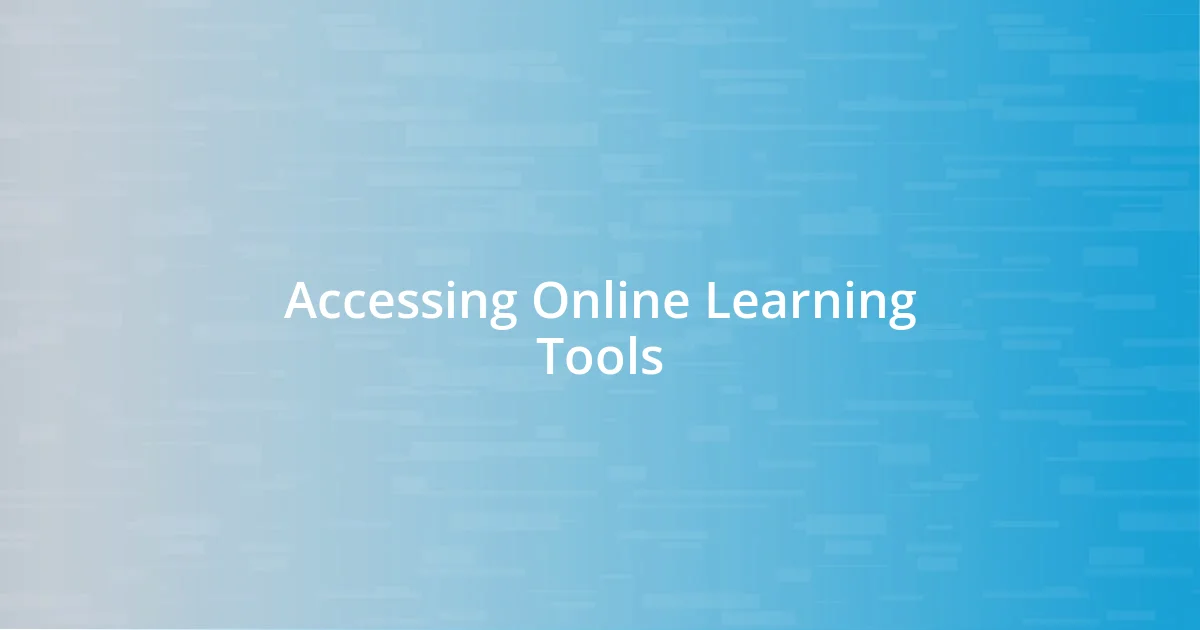
Accessing Online Learning Tools
Accessing online learning tools transformed my understanding of rights in an exciting way. There were nights when I’d sit in front of my laptop, scrolling through website after website, soaking in a wealth of knowledge that was just a click away. I vividly recall stumbling upon a series of webinars that focused on civil liberties; those late-night sessions gave me a huge sense of clarity. Have you ever felt like you were piecing together a puzzle, with each piece revealing more about your rights?
I was amazed by the variety of resources available—from free online courses to detailed articles that broke down complex legal jargon. I remember one particular course that taught me about my rights in the workplace. The instructor used real-life scenarios that resonated with me; it felt as if those examples were pulled straight from my own experiences. This relatable content made me realize that I wasn’t alone in navigating these challenges—so many others were seeking the same knowledge.
You know, engaging with interactive tools—like quizzes and discussion forums—really brought the learning process to life. I participated in online discussions where I could voice my questions and ideas, which was incredibly validating. Each time I interacted with others, it felt like we were creating a virtual community dedicated to understanding our rights. The way technology connected us made the learning experience feel less isolating and more enriching—it was comforting to know we were all in this together.
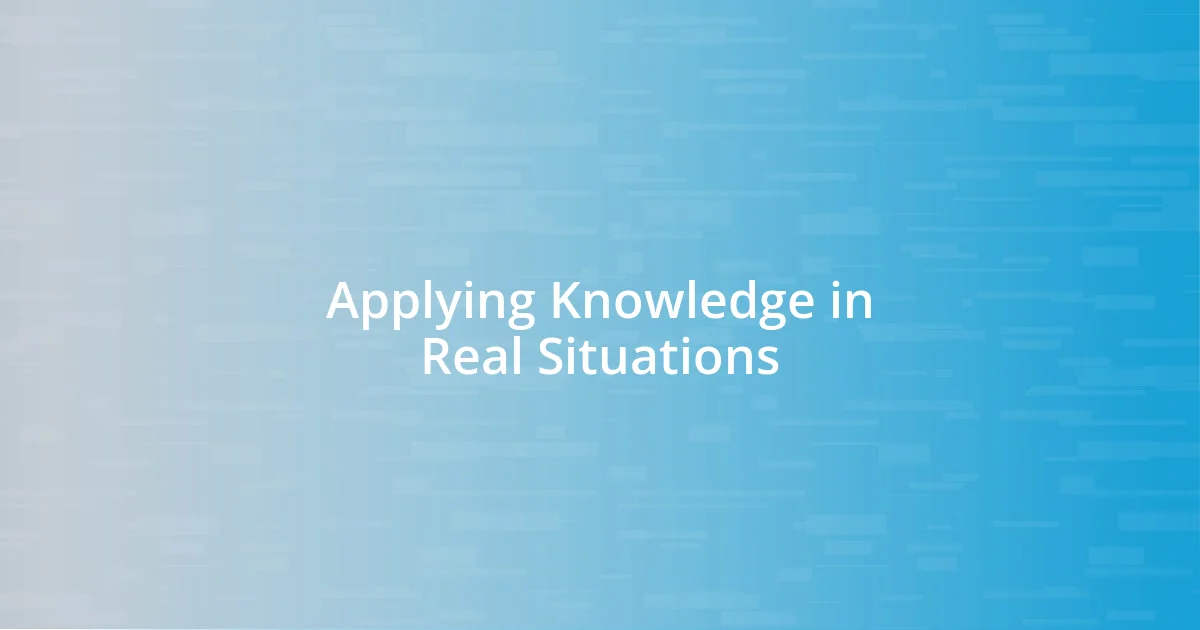
Applying Knowledge in Real Situations
When I finally put my knowledge to the test, it was both daunting and exhilarating. I had learned about my rights regarding housing policies, but facing my landlord over a lease issue felt like standing on a tightrope. As I mustered the courage to express my concerns, I couldn’t shake off the nerves; however, the sheer confidence I drew from what I had learned propelled me through the conversation. Have you ever experienced that moment when knowledge transforms into empowerment? For me, it was a key turning point.
One day, during a community meeting, I encountered someone who had a misconception about their rights in employment. Drawing from my research, I felt compelled to share insights about wrongful termination. It was refreshing to see their expression shift from confusion to understanding as I explained the protections available. In those moments, I realized how applying what I had learned wasn’t just about personal knowledge; it was about sharing that enlightenment and fostering informed dialogue within my community. It’s incredible how a simple discussion can ignite awareness in others, isn’t it?
Participating in a local advocacy group provided me with practical opportunities to apply my knowledge in real-world situations. I vividly remember joining a campaign that addressed unlawful evictions, and each week brought me closer to both the challenge and the cause. I felt the weight of responsibility as I educated others on their rights, seeing firsthand how awareness could drive change. Isn’t it inspiring to know that when we apply our knowledge, we can pave the way for others to stand up for themselves too? The experience showed me that educating ourselves is just the beginning; it truly comes alive when we share that understanding with the world.

